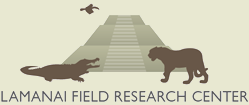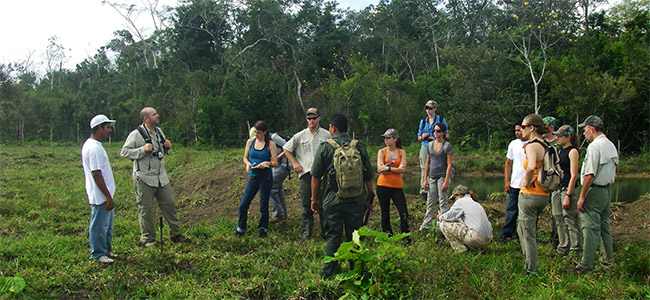University of Florida study abroad students took a walk on the wild side in Belize when they came down to get a feel for ecology and wildlife conservation in the tropics. Visiting the country, students were able to identify abundant plant and animal species at each ecological habitat, including those found in lowland broadleaf forests, pine savannah and freshwater wetlands of the New River area where LFRC is situated. As they soaked up the rich cultural experience, the class was exposed to conservation principles and practices as they related to the tropics of Belize Whilst here, students participated in hands-on field projects and devoted time to understanding the dynamics of human-wildlife conflict between landowners and wild cats, a global problem.
As part of our community-based conservation initiative, landowners maintain camera traps on their lands to document wild cat activity with the aim of assessing the resident population. During the class’ visit to LFRC, a participating landowner reported a missing calf, and with the help of local guides and the landowners, the students were able to locate the animal where we erected a camera station to capture a return visit. We came away with the first video documentary of two separate male jaguars feeding on the same kill with the sequence of events of visits over a three night period. Each jaguar had distinctive coat patterns and the larger of the two males showed signs of a potential hunting injury to its face and was blind in one eye. The ability to gather such valuable data on felid behavior and interact with landowners as the events unfolded provided a unique opportunity for UF students to understand a real world issue and stimulate discussion to assist with developing management programs for local communities living in wildlife areas.



